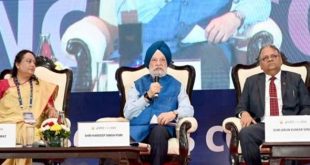A peculiarity of the equation of Shia and Sunni Islam is that a Sunni Muslim can also become a Shia because Shias are a minority in the Muslim world. Therefore, it was necessary for the Khamenei regime to take on board a section of Sunni militants.
The choice was not easy for Iran, because most Sunni militants are staunch opponents of Shia Islam and have been economically dependent on Sunni Arab countries. In such a situation, Hamas, the Palestinian wing of the Sunni Muslim Brotherhood, became a tool of Iran. The radical model of Islamic governance that Khamenei presented to the Muslim world influenced Islamic fundamentalists around the world.
One result of this was that all the secular governments and dictators of the Arab world gradually lost their popularity and Islamic fundamentalism became stronger.
Those Sunni monarchies that could not survive this wave started supporting Sunni jihadist organizations in other countries to relieve pressure on them, resulting in the rise of all Sunni terrorist organizations from Al-Qaeda to the Taliban.
The Taliban government in Afghanistan was a Sunni version of Khamenei's fundamentalist regime. When the Taliban government came to power in 1996, it was recognized by only three countries – Saudi Arabia, the United Arab Emirates and Pakistan. The first two of these were intended to establish a rival Sunni regime similar to Khamenei's Shia Islamic State in Afghanistan, bordering Iran, which would be led by a fundamentalist cleric, and where Sunni extremists would live together and project their power towards other countries. Will demonstrate. Can be directed.
Another effect of Khamenei's Islamic revolution was that people in restive Muslim areas around the world realized that regimes could be overthrown through violence. Khamenei also fanned this sentiment to increase his acceptance in the Muslim world and incited Muslims from Palestine to Kashmir with his speeches.
Sunni countries increasingly supported terrorist organizations to counter Iran's growing influence. Thus it has become a vicious cycle due to which lakhs of people have lost their lives. India's relations with Iran have been good and both the countries have worked together at many levels to keep Sunni Pakistan under control, but has Iran limited these relations to this? He does not want to let the Sunni extremists of Pakistan dominate him just like that.
There is not much space for India even in Khamenei's dogmatism. Just a few days before the Israeli attack on Hezbollah, Khamenei had made an inflammatory tweet comparing the situation of Muslims in India with that of Palestine.
Traditionally, Iran has played the role of protector of extremist forces operating in India and its parts. After being overthrown from India, Humayun restored the Mughal Empire in India with the help of the Shah of Iran.
was established
When the Mughals became weak after Aurangzeb, Nadir Shah took the immense wealth looted from Indians to Iran. After Nadir Shah, his commander Ahmed Shah Abdali stopped the expansion of the Marathas by carrying out several attacks on India and saved the Mughals from collapse. Very few people know that before the India-Pakistan war of 1971, the Shah of Iran had made a secret agreement with Pakistan for the security of Karachi port.
A message was also sent to India that if West Pakistan was attacked, Iranian forces would advance and protect Pakistan. From the above it becomes clear that Iran's behavior towards India has been bad since the beginning. Although relations have improved in some areas, Iran cannot be considered a friend of India at all. Like Pakistan, Iran has captured a part of Balochistan and brutally crushed its freedom movement.
Pakistan's notorious nuclear scientist AQ Khan has also had a hand in providing nuclear technology to Iran. If Iran had been a reliable friend of India, Pakistan's Sunni generals would never have provided nuclear technology to Iran.
It is clear that Iran's nuclear program is not even in India's interest and if Iran's role in the current conflict with Israel remains heavy, it will prove to be a major threat to world peace.
The geopolitical shadow of fundamentalism that originated in Iran extends to India. This shadow is also burning in the fire of competitive Islamic fundamentalism around the world. It would be good if the medieval conservative regime established by Khamenei eventually collapses in the current military conflict.
 look news india
look news india


